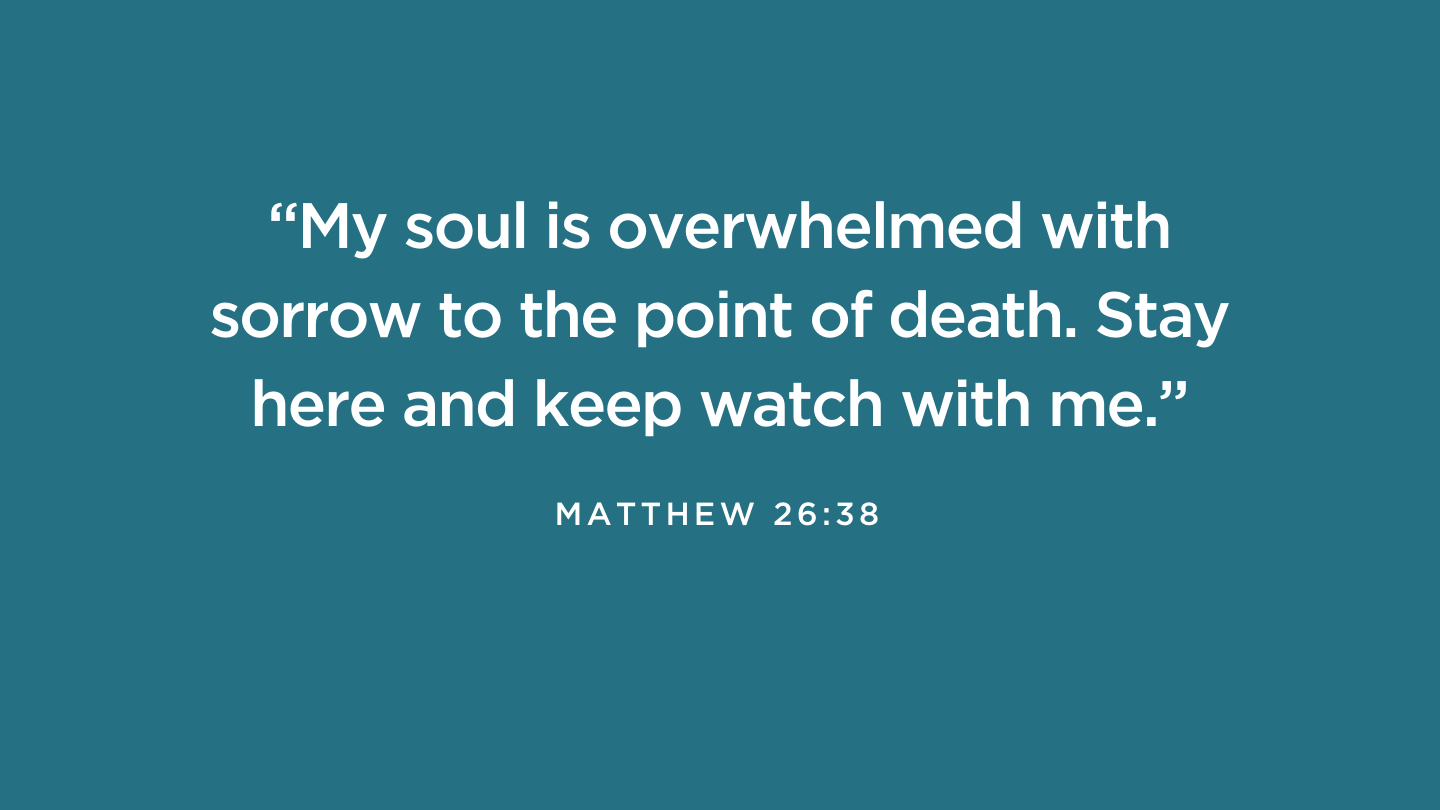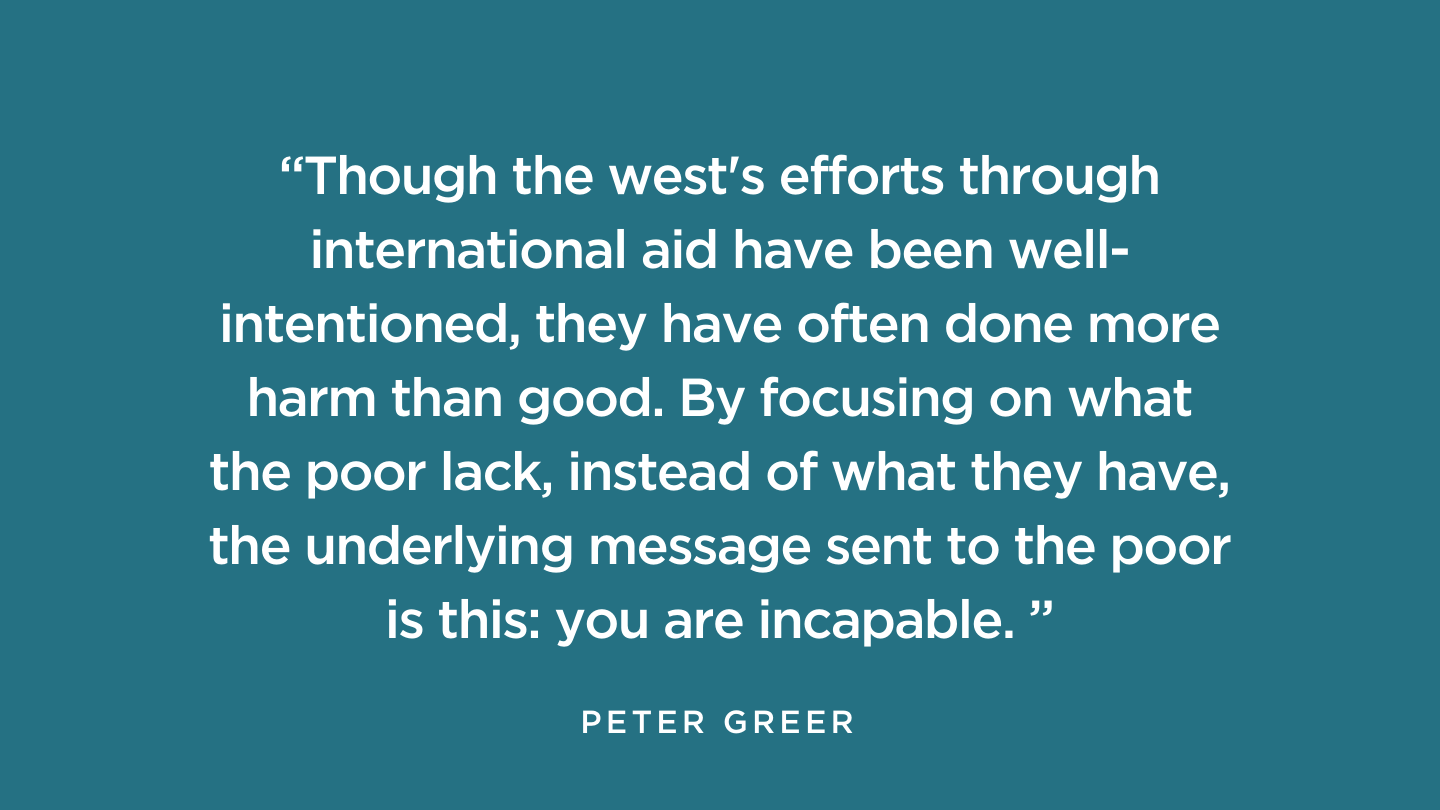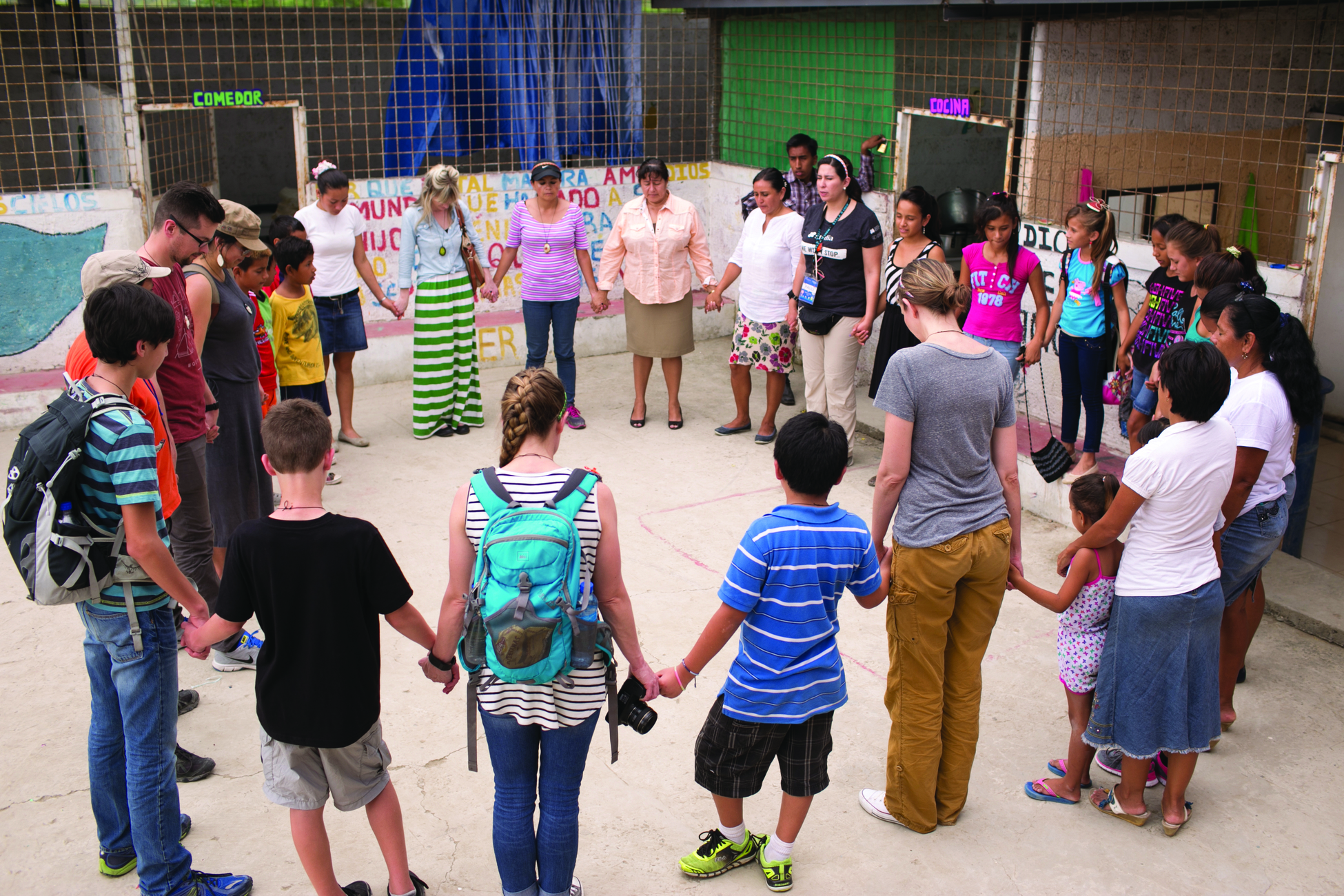Eyes to SeeSample


All of us—even the Son of God—need people to stand with us. As Jesus went to pray in the Garden of Gethsemane, feeling deeply troubled, He asked His disciples to stay with him:

The word solidarity comes from the French and means “mutual responsibility.” It means standing with others, stepping into their shoes, and acting as though their needs were ours.
We see things differently when we ask God to help us see others as He does. We start to think about how we would want to be loved if we were in the shoes of a person experiencing homelessness, displacement, or personal crisis. With God’s help, we can move from mere sympathy to actual empathy. This breaks the barriers between “us” and “them” — a person is no longer a service project but a fellow human being who we can learn from, walk with, and love.
Here are a few principles that can help us stand in solidarity with those in need:
- Engage in relationship. Because relationships are at the core of poverty, building up relationships must be part of the solution. Look for long-term opportunities to know and love people whenever possible.
- Drop your agenda. Sometimes we approach a problem thinking we have it all figured out. Be humble enough to drop your own agenda and embrace a different vision.
- Reduce the power differential. Often, those responding to need have all the power in the relationship and make all the decisions. Shifting power creates equality.
- Engage in partnership. Do not allow your response to poverty to be one-way, assuming you are the only one with something to give. Work to discover what both parties’ skills and resources include and allow yourself to receive as well as give.
- Acknowledge that everyone has a voice. Ensure that everyone has a voice. Who is already working toward a solution? Can you come alongside them?
- Seek solutions that empower. Together, find solutions to issues that build the capacities of people in need and allow them to take an active role. Don’t do things for people that they are capable of doing themselves.
- Seek solutions that get to the root of the problem. Don’t offer short-term or short-sighted solutions; find solutions that will create long-term change.
- Be committed. Real problems are rarely quick and easy fixes. If you truly want to make a difference, be committed to people and relationships for the long haul.
- Continually learn. No one gets things right the first time or the second time, for that matter. Be willing to continually learn from one another and make changes as they need to be made.
- Pray. Keep your service to God centred on Him so you can be refreshed and renewed. Ask God to guide your steps and help you correct your missteps. Standing in solidarity with people in need is not easy. But it is what we are called to. Jesus calls us to stand in solidarity with those in need, speaking up for them and standing with them.

Reflect:
- Which item in today’s list stood out to you most? Why?
Pray:
Lord, I appreciate that You stepped into my shoes and that You fully identified with me on the cross. Thank You. Would You help me to move toward a place where I can stand with others in true solidarity? Help me never to treat anyone as a project or a statistic but to recognize their value as a person. Amen.

Scripture
About this Plan

Jesus had compassion, especially for those facing poverty, injustice, and inequality. What is our response? Do you see the world the way God does? If you want to go deeper and understand the spiritual root of poverty, join us for this 42-day video-assisted bible study from Compassion Canada. Ideal for group study or a challenging personal journey. Abridged and Updated.
More
We would like to thank Compassion Canada for providing this plan. For more information, please visit: http://cmpsn.ca/YV
Related Plans

One New Humanity: Mission in Ephesians

Losing to Win, Serving to Lead, Dying to Live

Holy, Not Superhuman

Inspire 21-Day Devotional: Illuminating God's Word

Lead Boldly: Leading From Wholeness, Not Wounds

Strategy: The Strategic Faith of Caleb in Overcoming the Giants – a 5-Day Devotional by Allma Johnson

What Does God Want Me to Do Next?

HEAL BOLDLY: Healing Is Holy Work - a 5-Day Devotional Journey for Women Ready to Heal, Grow, and Rise

Is God Enough?—Encouragement From David’s Psalms
